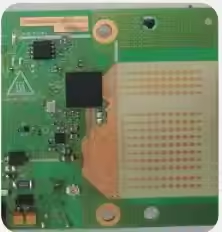hydrogen fuel cell supplier
A hydrogen fuel cell supplier serves as a crucial partner in the clean energy transition, providing cutting-edge fuel cell technology and comprehensive solutions for various applications. These suppliers specialize in the development, manufacturing, and distribution of hydrogen fuel cell systems that convert hydrogen into electrical energy through an electrochemical process. The advanced technology incorporates proton exchange membrane (PEM) fuel cells, which operate at high efficiency levels while producing zero emissions except for water vapor. These suppliers typically offer a range of products, from individual fuel cell stacks to complete power modules, catering to diverse industrial needs including automotive, stationary power, and material handling equipment. Their expertise extends beyond mere product provision, encompassing system integration, maintenance services, and technical support. Modern hydrogen fuel cell suppliers employ sophisticated quality control measures and automated manufacturing processes to ensure consistent product performance and reliability. They maintain strategic partnerships with hydrogen infrastructure providers, ensuring seamless integration of their fuel cell systems into existing energy networks. Additionally, these suppliers often provide customization options to meet specific power requirements, ranging from small-scale applications to large industrial installations.


